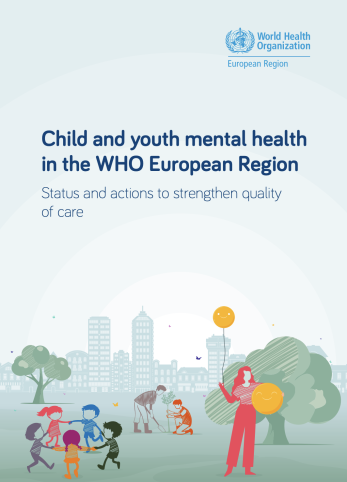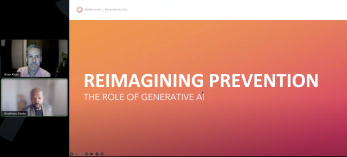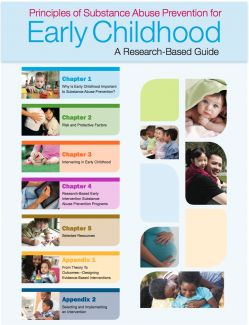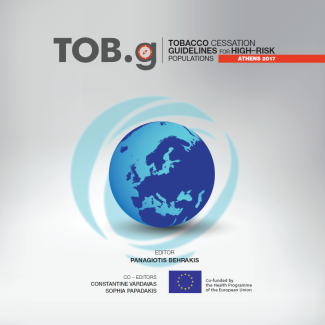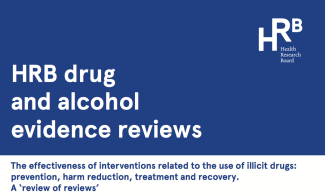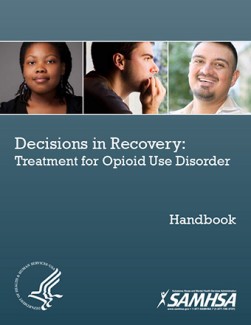
Cerca
Line Up Live Up Trainer Manual: Preventing Drug Use by Promoting Active Lifestyles
Line Up Live Up is a new United Nations Office on Drugs and Crime (UNODC) Trainer Manual prepared by Peer van der Kreeft of HoGent University College Ghent’s Department for Education, Health and Social Work.
It looks to promote sport and...
Strategies to Facilitate Integrated Care for People with Alcohol and Other Drug Problems
Abstract
Background
There is a growing body of research highlighting the potential benefits of integrated care as a way of addressing the needs of people with alcohol and other drug (AOD) problems, given the broad range of other issues...
EMCDDA Insights: Prevention of Substance Abuse
Prevention of Substance Abuse by the European Monitoring Centre for Drugs and Drug Addiction (EMCDDA) is a report that draws on evidence-based research to assess substance use prevention interventions, in terms of their ability to...
Principles of Substance Abuse Prevention for Early Childhood
The National Institute on Drug Abuse’s (NIDA) Principles of Substance Abuse Prevention for Early Childhood (2017) is a special volume that supplements the organisation’s Preventing Drug Abuse Among Children and Adolescents, released in 2003...
Dotare i lavoratori delle farmacie comunitarie come agenti per il cambiamento del comportamento sanitario
Astratto
Obiettivo: Sviluppare un intervento complesso per il personale della farmacia della comunità per promuovere l'adozione di servizi per smettere di fumare e aumentare i tassi di abbandono.
Disegno: Seguendo il quadro del Medical...
Tobacco Cessation Guidelines for High Risk Populations
The book “Tobacco Cessation Guidelines for High Risk Populations” is the main result of the TOB.g partnership, coordinated by the Hellenic Center for Disease Control & Prevention and consisted of four partners and specifically ENSP, CMT...
Use and Knowledge of Contraceptive Methods by Patients in Two Substance Use Disorders Treatment Centers in Paris
Abstract
Background
Studies on contraceptive use by patients with substance use disorders (SUD) show a concerning low use of contraception. Mainly conducted in USA, they could be irrelevant to patients attending European SUD treatment...
The Effectiveness of Illegal Drug Interventions
This Health Research Board document reviews evidence on the effectiveness of interventions in the areas of prevention, harm reduction and long-term recovery from addiction to illegal drugs.
It asks which interventions are effective for:
- ...
Compilazione di programmi di formazione sulle competenze familiari basati sull'evidenza
La raccolta di programmi di formazione sulle competenze familiari basati sull'evidenza dell'Ufficio delle Nazioni Unite contro la droga e il crimine (UNODC) offre un tesoro di informazioni su tali iniziative, rispondendo a domande chiave...
Decisions in Recovery: Treatment for Opioid Use Disorder
This handbook provides guidance on using the web-based, multimedia tool 'Decisions in Recovery: Medications for Opioid Addiction'. This handbook and the web-based tool offer information about medication-assisted treatment. Both resources...
Standard di conoscenza per la scienza della prevenzione
Pubblicato dalla Society for Prevention Research nel 2011, Standards of Knowledge for the Science of Prevention è un documento importante per coloro che lavorano nell'ambito della prevenzione dell'uso di sostanze.
Con l'obiettivo di...
Efficacia Banca Alcol Trattamento Matrice 2017
È tempo di un riassunto dell'aggiornamento 2017 della matrice del trattamento dell'alcol. Pubblicati quindicinalmente, i commenti sulle 25 cellule e sui "morsi" si sono accumulati in un corso che riflette sulla ricerca più significativa...
How to Tackle America’s Opioid Crisis?
Much the result of a poor understanding of how to treat chronic pain, the United States has in recent years been rocked by an unprecedented drug crisis: The opioid epidemic.
Opioids include drugs derived from opium, such as heroin, as...
Morphine versus Methadone Treatment for Neonatal Withdrawal and Impact on Early Infant Development
Abstract
Objective: Compare developmental outcomes in infants treated with morphine versus methadone.
Method: Retrospective chart review of newborns identified through use of ICD-9 code for neonatal abstinence syndrome (NAS). Thirty-six...
Towards a New Consensus for Addiction Medicine Training
Drug Misuse and Dependence: UK Guidelines on Clinical Management
There is no more important document for doctors treating problem drug use in the UK than the so-called ‘Orange guidelines’. This major update will substantially inform judgements of what constitutes acceptable medical practice - should...
Affrontare l'uso di sostanze da parte dei giovani con programmi in 12 fasi
Un nuovo studio recentemente pubblicato sulla rivista accademica Addiction suggerisce che i programmi di trattamento dell'uso di sostanze che incorporano pratiche in 12 fasi, come quella utilizzata da Alcolisti Anonimi (AA),sono più...
Call for Papers: Garantire uno sviluppo sano per tutti i giovani attraverso il potere della prevenzione
Parents Are a Key Influence on Teenage Drinking Habits, Study Finds
A new study that provides details of drinking habits and influential factors among Australian teenagers appears in the latest edition of the academic journal BMC Public Health.
The investigation’s findings notably include:
- Most students...
Revisione: Farmacogenetica del trattamento dell'alcolismo: implicazioni della diversità etnica
Astratto
Contesto e obiettivi
Studi farmacogenetici sul disturbo da uso di alcol (AUD) hanno suggerito che l'efficacia dei trattamenti per l'AUD è, in parte, influenzata dal background genetico di un individuo. Poiché la frequenza degli...
Share the Knowledge: ISSUP members can post in the Knowledge Share – Sign in or become a member

